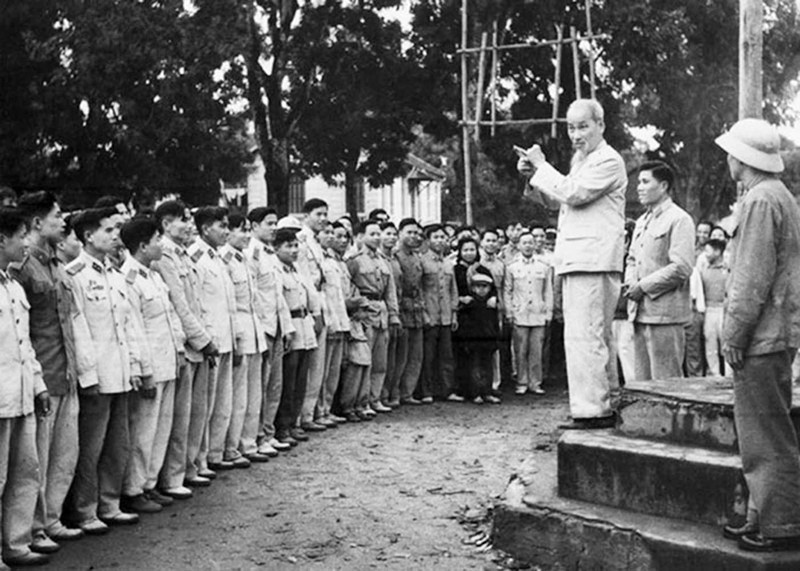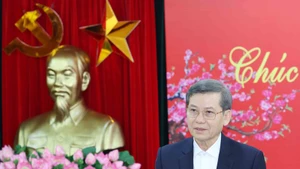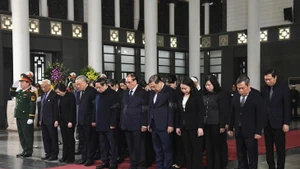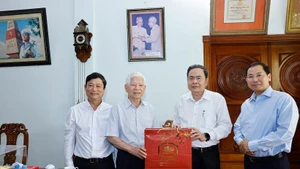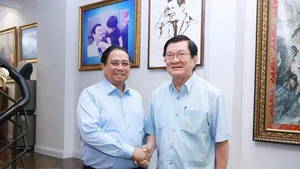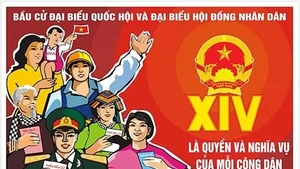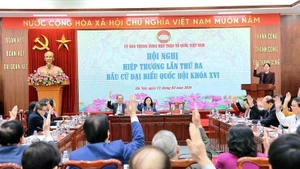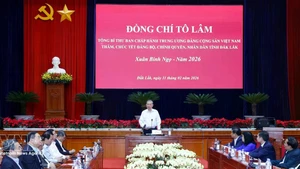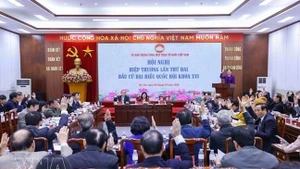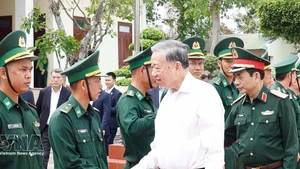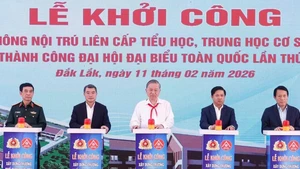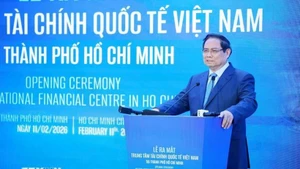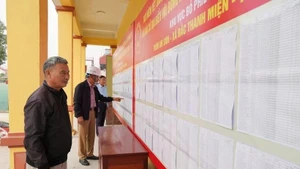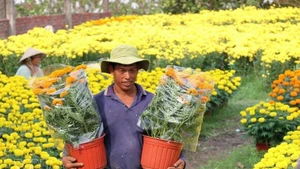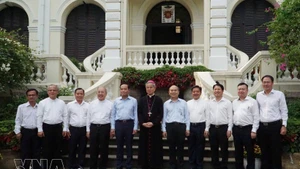After the triumph over French colonialism, the Vietnamese revolution entered a new stage, where it had to simultaneously fulfil two strategic tasks: the transition to socialism in the North and the struggle for the liberation of the South and national reunification.
Closely adhering to the Party's resolutions and directives on revolutionary tasks in the two regions and suppressing counter-revolutionary forces, the Party Committee and the Ministry of Public Security leaders laid out specific plans for each stage of the war. Under its leadership, the Public Security Forces built their strength while remaining steadfast in combat, winning many notable successes.
In the North, the People's Public Security Forces actively took part in the takeover of newly liberated areas, establishing social order, preventing sabotage activities, consolidating and protecting the revolutionary authority, restoring the economy, advancing socialist reforms, and fighting against enemy enticement and coercion of people to migrate to the South.
They proactively uncovered and dismantled numerous espionage and sabotage networks left by the French and US forces; coordinated with the People's Army forces in counter-banditry campaigns dismantling thousands of hostile groups; suppressed dozens of uprisings in the northern mountainous regions; and advised Party committees and authorities at all levels to implement “zoning to suppress counter-revolutionaries,” disrupting the plots of reactionary organisations, educating and re-educating dangerous social elements, and cleaning up enemy networks.
Since 1961, upon discovering that US intelligence agencies and the Saigon administration were aggressively dispatching spies to the North, the People's Public Security Forces took the initiative to organise numerous special operations and "professional games", using enemy personnel and equipment to turn them against the enemy. From 1961 to 1973, our forces coordinated the interception, capture, and elimination of over 100 enemy teams involving over 900 spies and commandos. They seized hundreds of tonnes of weapons, communications equipment, and supplies of the enemy, thereby protecting key economic and political targets and thwarting the schemes of “fighting Communists from within Communists” of the US imperialists and the Saigon regime.
When the US imperialists launched their air and naval campaigns to sabotage the North, the People's Public Security Forces ensured the absolute safety of the central Party and State agencies, leaders of the Party and state, and international delegations. They safeguarded socialist assets, the lives and property of the people, maintained traffic order and safety along vital routes, participated in rescue and disaster response efforts, fought fires, preserved security and order, and coordinated with the military to destroy enemy aircraft. These efforts contributed to historic victories in Ham Rong, Truong Bon, Dong Loc, and most notably the “Dien Bien Phu in the air” campaign, which defeated the enemy’s destructive warfare.
With the spirit of “All for the beloved South”, from 1959 to April 30, 1975, more than 10,000 public security officers and soldiers from the North were deployed to support the southern battlefield, in the most difficult and fierce areas. They immersed themselves in revolutionary movements, united in shared hardships with local officials and people, and accomplished their assigned missions.
In addition to personnel support, the Northern Public Security Forces also provided tonnes of medicine and medical equipment, hundreds of tonnes of weapons and ammunition, communications equipment, and various food supplies and necessities. In the South, under the guidance of the Party and President Ho Chi Minh, the Party Committee and leaders of the Ministry of Public Security, together with the Central Office for South Vietnam, built the Southern Security Forces from scratch into a strong, reliable, and sharp revolutionary armed force, absolutely loyal to the Party. Fearless of hardships and sacrifices, they tenaciously operated across all fronts, contributing to the defeat strategies of America and the puppet military.
Proactively building plans and measures to protect the Central Office for South Vietnam based in Tay Ninh, safeguarding headquarters of regional and provincial Party Committees, they established thousands of clandestine and intelligence bases, and closely coordinated with the Liberation Army to actively engage in enemy attacks across the three strategic regions of mountainous areas, rural areas, and urban centres. They advised Party committees, authorities, and mass organisations to enhance revolutionary vigilance, maintain internal purity, prevent spies, informants and espionage; dismantle many internal spies, protect Party agencies and mass organisations; promote the "preventing spies and safeguarding secrecy" movement. They mobilised the masses to eliminate enemy informants, destroy fortified outposts, and regain control, creating a dense defensive network to intercept and eliminate the enemy, thus protecting the Party, bases, and liberated areas.
With ingenuity and creativity, intelligence forces penetrated enemy ranks, gathering strategic information vital to thwarting raids, sweeps, and attacks, ensuring the safety of revolutionary bases. They actively dismantled enemy espionage and infiltration networks.
The armed reconnaissance forces operating within urban centres, in coordination with intelligence units, organised numerous attacks at the enemy’s strongholds in major southern cities, eliminating enemy personnel and seizing vital documents that served military and political struggles across the battlefield.
The political security forces, working alongside the southern security apparatus, uncovered numerous plots, opened many investigations, dismantled reactionary organisations involved in espionage and internal subversion, and handled thousands of intelligence and police subjects who committed many crimes against the people. Intelligence forces also collected crucial information on enemy schemes and activities, providing timely advice to the Party Central Committee and the Ministry of Public Security to devise policies and strategies appropriate to each stage of the revolutionary struggle.
During the General Offensives from 1968 to 1975, the security forces closely monitored enemy movements and the situation, focusing on dismantling puppet governments in urban areas and apprehending intelligence agents and spies in rural areas.
They actively led forces, integrating external assaults with internal uprisings, helping to dismantle enemy resistance, seize important positions, capture leaders of the enemy’s intelligence, police, and psychological warfare apparatus; called upon enemy troops to surrender, and capture police and intelligence headquarters, thereby paving the way for the Liberation Army's advance.
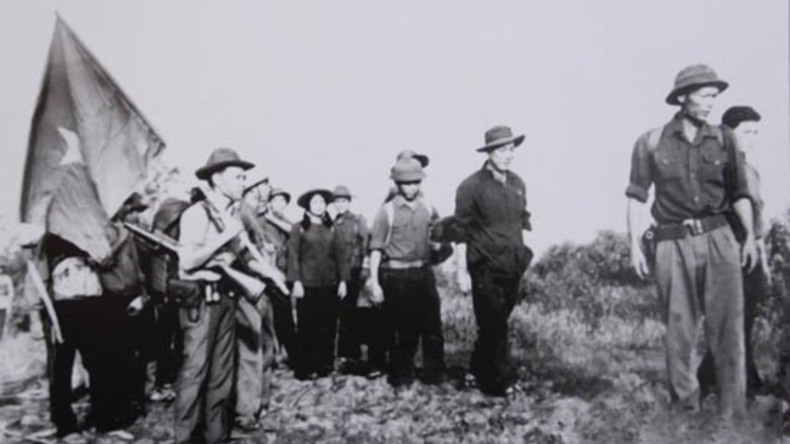 |
| The Public Security Forces of Region T4 are preparing to march towards Saigon to join the Ho Chi Minh Campaign. (Photo: VNA) |
Particularly during the General Offensive and Uprising in Spring 1975, the Saigon-Gia Dinh Security Forces approached and seized the headquarters of the National Police Command and the Metropolitan Police Command, captured district police offices, and secured all documents the enemy left behind.
Agents of the T4 Security forces were present at the Presidential Palace of the Saigon puppet regime, calling on enemy soldiers to cease fire and hand over power to the revolutionary forces, helping to minimise bloodshed and damage in the city.
Throughout 21 years of fierce resistance, over 10,000 officers and soldiers of the People's Public Security Forces heroically sacrificed their lives; nearly 5,000 others became war invalids, offering part of their blood and bones for the cause of national independence, freedom, and socialism, and the liberation of the South and national reunification. Thousands of officers and soldiers were captured, imprisoned, and brutally tortured by the enemy, or or exposed to Agent Orange; tens of thousands of revolutionary grassroots facilities silently made immense contributions and sacrifices across battlefields and major rear areas in the North, greatly contributing to the ultimate victory of the resistance war against the United States, and further glorifying the proud tradition of the People's Public Security Forces.
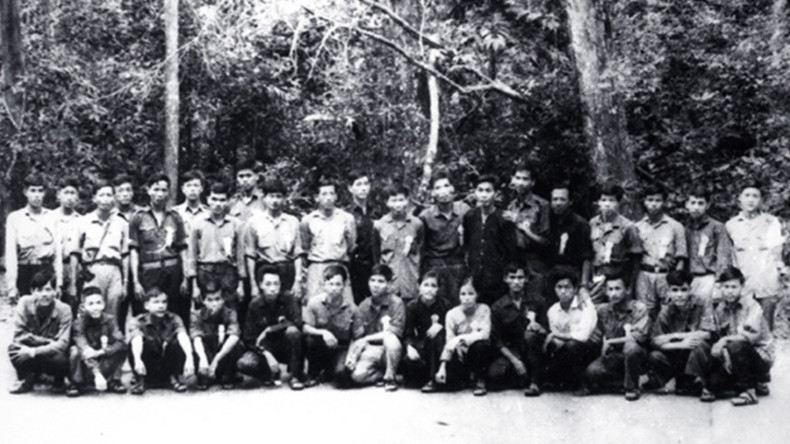 |
| Officers and soldiers of the Central Office for South Vietnam were awarded the title of “Heroic Warrior” for their outstanding achievements in fighting in 1971. (Photo: cand.com.vn) |
Recognising these immense contributions, the Party and the State awarded the title of Hero of the People's Armed Forces to 331 units and 265 individuals, along with many other high honours.
Their heroic sacrifices and contributions remain a shining symbol of revolutionary heroism, deeply honoured and remembered by the Party, the State, and the people, leaving behind important historical lessons — including the need to maintain the Party’s direct, absolute leadership and to creatively apply the Party’s guidelines.
It is a key lesson on promoting the role and strength of the people in protecting national security and public order, while building a strong, capable public security force to meet the evolving demands of each period. It also underlines the importance of gathering intelligence, accurately identifying key targets and strategic areas, proactively preventing and continuously striking against counter-revolutionary forces and all forms of crime, fostering self-reliance and resilience, and coordinating closely with the People's Army and other agencies; while simultaneously seeking the support of security forces from socialist countries and maintaining close cooperation with the security forces of Laos and Cambodia to leverage the combined strength in protecting national security and social order.
After 50 years of national reunification and nearly 40 years of reform, Vietnam has built significant capacity and momentum. With fresh opportunities on the horizon, the 10th plenum of the 13th Central Committee of the Communist Party of Vietnam concluded that the nation now stands at a historic opportunity, ready to enter a new era, the rising era of the nation.
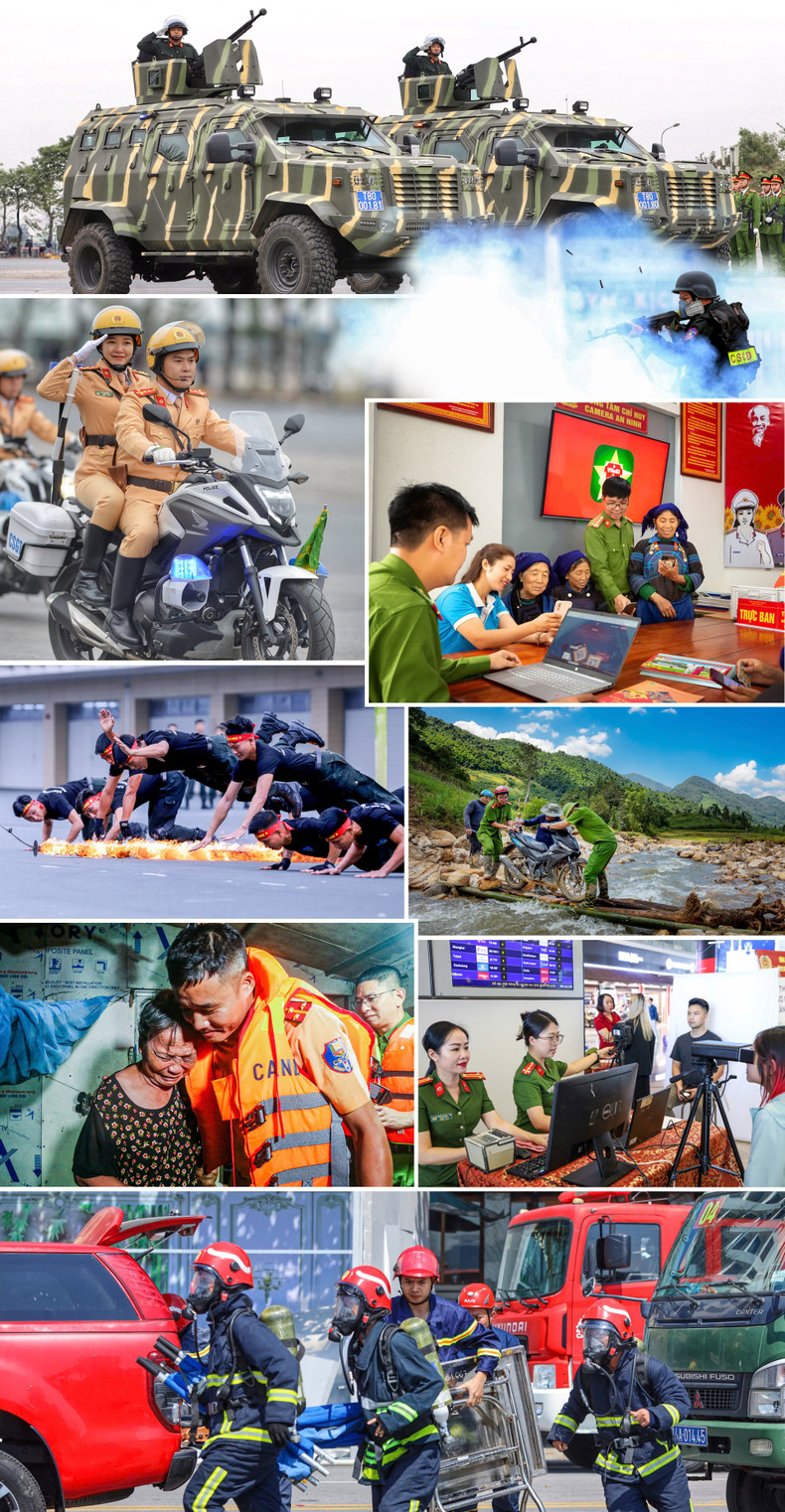 |
| The People's Public Security Forces have matured and developed comprehensively.(Photo: cand.com.vn) |
Alongside opportunities and favourable conditions, the cause of national building, development and defence must also face numerous difficulties and challenges. Hostile and reactionary forces have never abandoned their schemes to abolish the leadership role of the Communist Party and overthrow the socialist regime in Vietnam. They are intensifying the implementation of the "peaceful evolution" strategy, fiercely attacking from within, promoting "self-evolution" and "self-transformation", and attempting to "depoliticise" the armed forces through extremely insidious and dangerous methods.
Domestically, some complex security problems remain latent. Criminal activities, particularly non-traditional crimes and cybercrime, continue to develop in a complicated manner, adversely affecting the peaceful and happy lives of the people.
The People's Public Security Forces consistently foster revolutionary ethics, cultivate a strong political will, and remain loyal to the Party, the Fatherland, and the people.
Promoting the glorious tradition and profoundly inheriting invaluable lessons learned during the resistance war against the US, the People's Public Security Forces continue to uphold the spirit of unity, persistently train in revolutionary ethics, reinforce their political bravery, and maintain unwavering loyalty to the Party, the Fatherland, and the people. They work in close coordination with the People's Army, ministries, sectors, localities, and socio-political organisations, and rely on the support of the people to overcome hardships and challenges. They resolutely defeat all plots and acts of sabotage by hostile and reactionary forces, as well as all forms of crime, firmly safeguarding national security and social order in every circumstance. In doing so, they contribute to the collective efforts of the Party, the people, and the armed forces, under the Party's leadership, to advance the nation firmly into a new era,an era of development, prosperity, and successful implementation of the cause of building and defending the socialist Fatherland.
